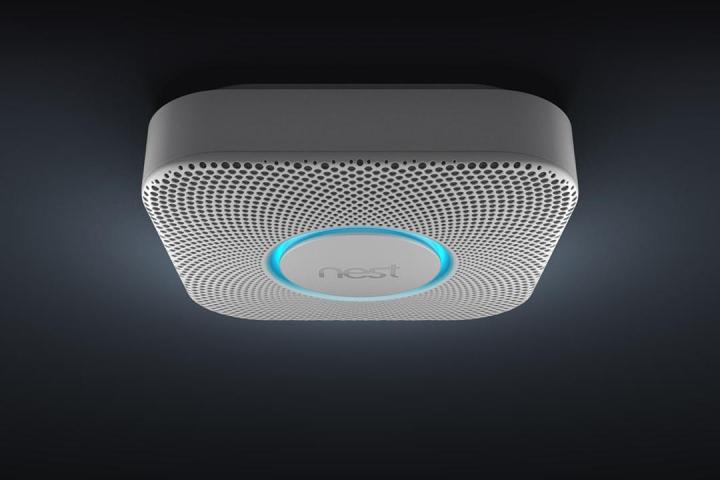
Update 5-21-2014: Nest has officially issued a recall of 440,000 Nest Protect Smoke + CO alarms in order to repair a software glitch that prevents the unit from properly sounding the alert. Although the U.S. Consumer Product Safety Commission is designating it as a recall, there’s no need to physically send the unit back to Nest, as the company has a software update ready that fixes the problem; the CPSC does recommend customers stop using the product until it has been fixed. The devices, however, must be connected to the Internet in order to receive the automatic software update; users can simply head to the “Nest Sense” section of their account and ensure that the “Nest Wave” button is off and grayed out. If your Nest Protect isn’t connected, you should do so immediately for the automatic update. Users can also request a refund for the product. More recall information can be found here. (H/t San Jose Mercury News)
A smoke alarm is one of those devices that you really don’t want to fail when the time comes for it to actually do what it does.
With this in mind, Nest has issued a safety notice for users of its Internet-connected Protect smoke and carbon monoxide alarm after discovering a software glitch with its ‘Wave’ feature that could potentially delay the alarm’s activation in the event of a fire. For those not in the know, Wave is a much-praised feature of the alarm that lets you deactivate the system with a brief wave of the hand – perfect for those moments when a few wisps of harmless smoke float up from your stove top.
Penned by Nest CEO Tony Fadell, the safety warning says the Google-owned company has decided to disable the the Wave feature until it finds a fix for the flaw, though this could take “two or three months.” It also announced it’s halting sales of the device “to ensure no one buys an alarm that needs an immediate update.” It added that the notice is in no way a product recall.
Explaining the situation, the company boss said his lab engineers discovered “a unique combination of circumstances” that could “unintentionally activate” the Wave feature.
“We identified this problem ourselves and are not aware of any customers who have experienced this, but the fact that it could even potentially happen is extremely important to me and I want to address it immediately,” Fadell said.
Plan of action
The company says that in the next 24 hours it’ll automatically disable the Wave feature for users who have a Nest Protect device connected to a Nest account via Wi-Fi.
More importantly, it says that if your device is not connected to a Nest account, or you’ve taken it offline, you should “immediately” reconnect it so the company can remotely disable the feature.
Additionally, if you can’t connect to Wi-Fi, you should stop using the device altogether, the company said. It added that it’ll offer all users a complete refund (until September 30) if they decide to return the device.
Nest says that once Wave has been disabled, its alarm will operate in the normal way. Of course, this may mean it’ll start behaving more like your traditional smoke alarm, going off when you’re cooking eggs, so it may be wise to keep a broom nearby should you need to hit the Nest button in the event of a false alarm.
For full details on the situation, including how to confirm that Wave has been disabled, be sure to check out Nest’s dedicated page here.


